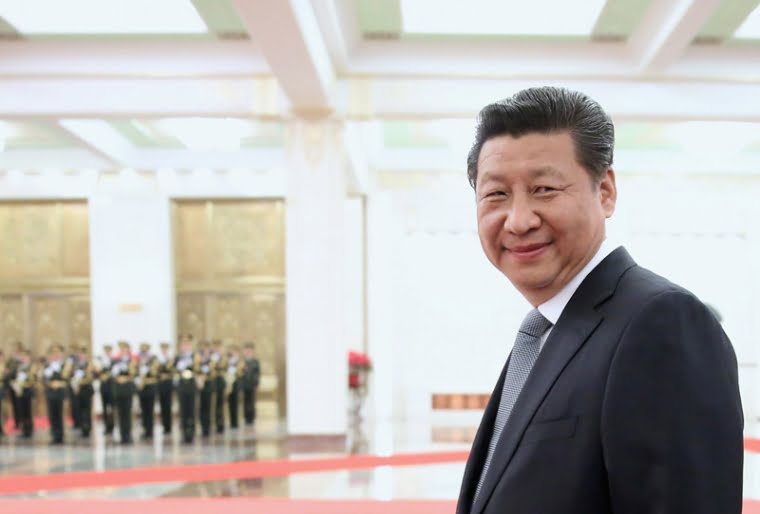Chinese leader Xi Jinping has stepped up his rhetoric on the country’s digital and innovation future, setting out a clear timetable for the world’s most populous nation to seize the future and become a world leader in science and technology by the middle of the century.
China’s aim is to establish itself as one of the most innovative countries by 2020, and a leading “innovator” by 2030, before realising the objective of becoming a world-leading science and technology power by the centenary anniversary of the founding of the People’s Republic of China in 2049, President Xi said.
The man widely regarded as China’s most powerful leader since Deng Xiaoping – who led the opening up and reform for the country from 1978 – made the remarks at an event that brought a biennial conference of the Chinese Academy of Sciences (CAS) and the Chinese Academy of Engineering (CAE), as well as the national congress of the China Association for Science and Technology (CAST)”, according to veteran China watcher Bill Bishop’s closely followed Sinocism newsletter.

“Our biggest advantage is that we, as a socialist country, can pool resources in a major mission,” Mr Xi said, in comments reported by the state run Xinhua news agency.
Following Mr Xi’s comments, at the same conference his deputy Premier Li Keqiang promised more “more freedom and financial support for the science and technology,” Mr Bishop’s Sinocism stated.
At the centre of the plan are two new projects named ‘Internet Plus’ and ‘Made in China 2025’ strategies, that have calls for progressive increases in domestic components in priority industries such as robotics and aerospace equipment, the South China Morning Post reported.
In recent years, China – a country that famously invented such things as gunpowder and the compass – has sought to reassert itself as a global centre for innovation as it attempts to shrug of the tag of a low cost copier of other nations intellectual property.
While Shenzhen-based Huawei Technologies has become the largest maker of telecoms and internet equipment in the world, and Chinese internet giants Alibaba, Tencent and Baidu have become amongst its most valuable companies but have largely aped the business models of western rivals.
This raises questions over China’s ability to develop inventions commercially that will help it leapfrog other nations and reignite a new economic growth model.
Mr Xi laid out his plan for China only two months after Australia’s largest ever foreign business delegation swept through China seeking business opportunities as the mining boom continues to fade.
“To be the world’s major scientific and technological power, the state will have to champion first-class institutes, research-oriented universities and innovation-oriented enterprises,” Mr Xi said.
He also promised unspecified support for technology companies, especially small and medium-sized firms, and a promise to reorganise research institutes and universities together with vague plans for cities and regional centres to become more attractive to innovation industries.
But many have doubted China’s ambitions in the science, technology and innovation fields, largely due to the increased restrictions in recent years. This is especially the case since Mr Xi became leader of the ruling Communist Party, with tighter restrictions on academic thought and freedom – the so-called market place of ideas.
Since Mr Xi’s rise , Chinese authorities have intensified a campaign of what is described in the often contradictory official language of the Party’s propaganda department as campaign for ‘indigenous innovation’ – the replacement for largely US-based technology with that made by Chinese companies. This has seen major innovators such as Google largely pack-up from the world’s second largest economy.
More recently Cisco Systems, IBM, Apple and Microsoft have also come under pressure from the Chinese government in a concerted campaign against US technology interests.
This has gone hand-in-hand with ever increasingly censorship of the internet, and the exclusion of foreign sites through the the Great Firewall of China. This has been especially aimed at social media platforms such as Facebook, Twitter and the west’s main search engine Google – that has staunched the spread of ideas in China.
Mr Xi’s comments also come as China’s economy continues to show stubborn signs of a continuing slow-down from three decades of double digit GDP growth (only interrupted by the tumultuous disruption of the Tiananmen Square massacre of the 1989, the anniversary of which occurs later this week on June 4.)
Promised sweeping economic reforms that global markets and the international businesses community have sought after have so far also failed to eventuate.
That marked the end of the most open, pluralistic decade in China since the ascent of the Communist Party to power in 1949 and the massacre is an event form which the country has yet to truly recover.
Still, China continues to rack up countless patents and certainly opportunities remain for smart companies to enter the China market and the Chinese government continues to throw billions of dollars at Mr Xi’s goal.
But despite the rhetoric, the jury remains out: Just as it does on Mr Turnbull’s own innovation ambitions, an early centrepiece of his administration but which have barely gotten a mentioned so far in the Australian election campaign.
Do you know more? Contact James Riley via Email.

